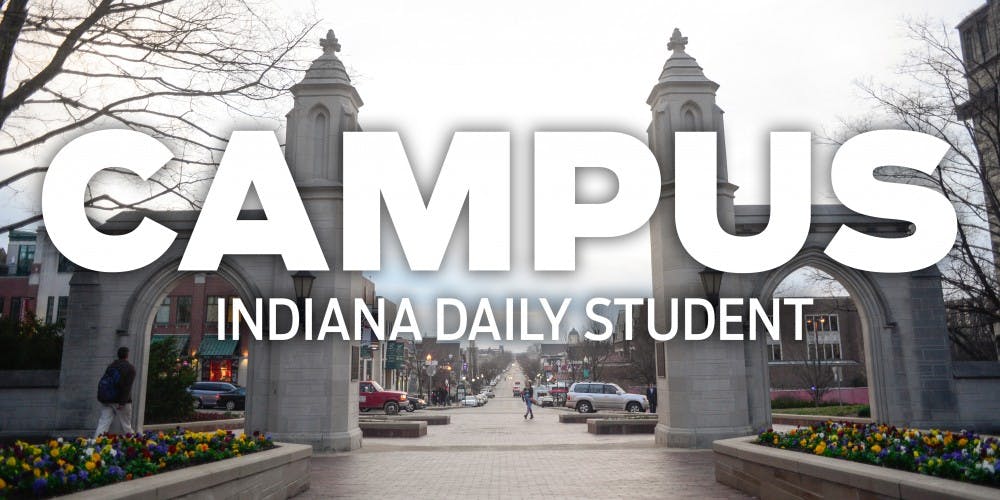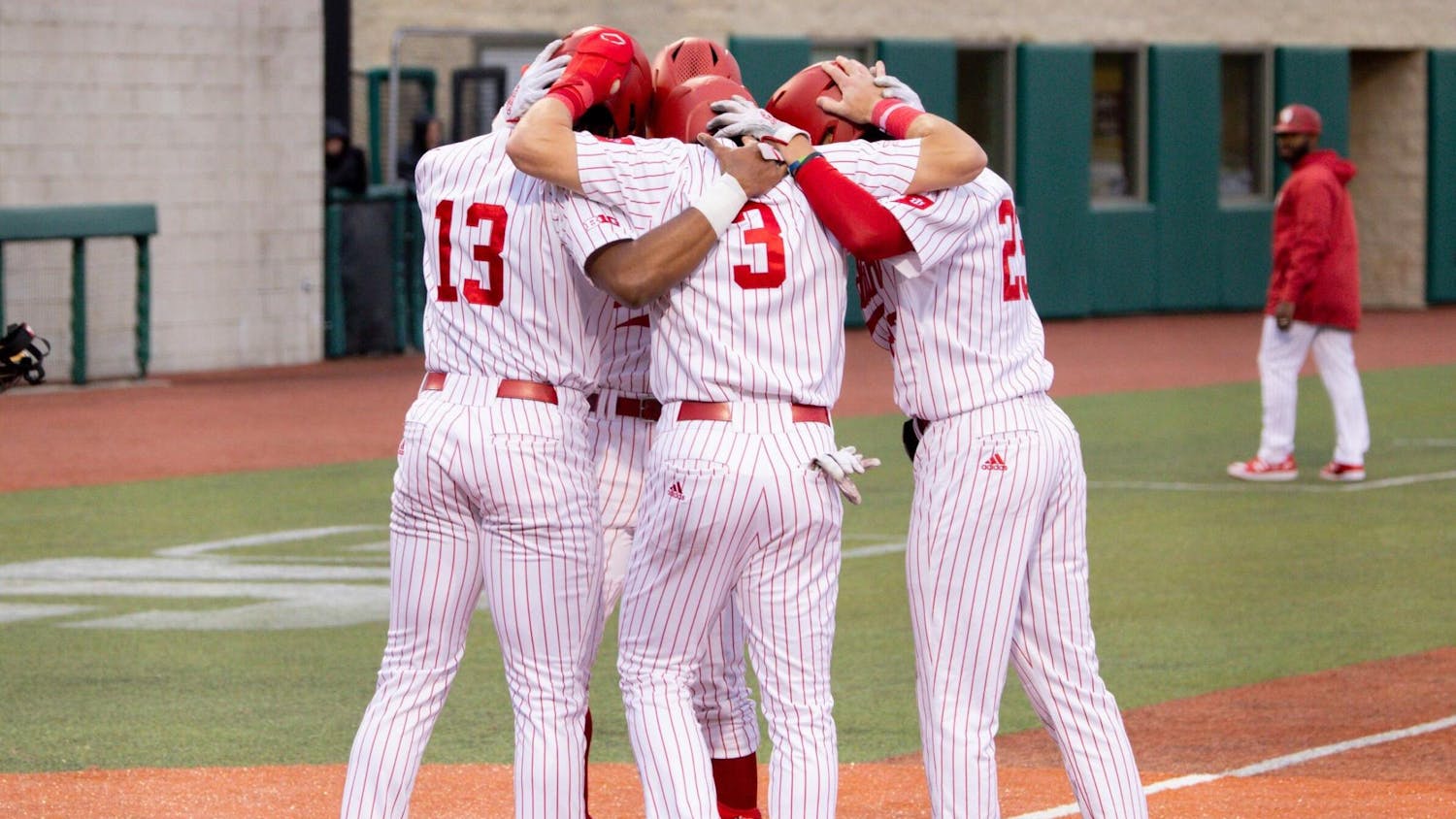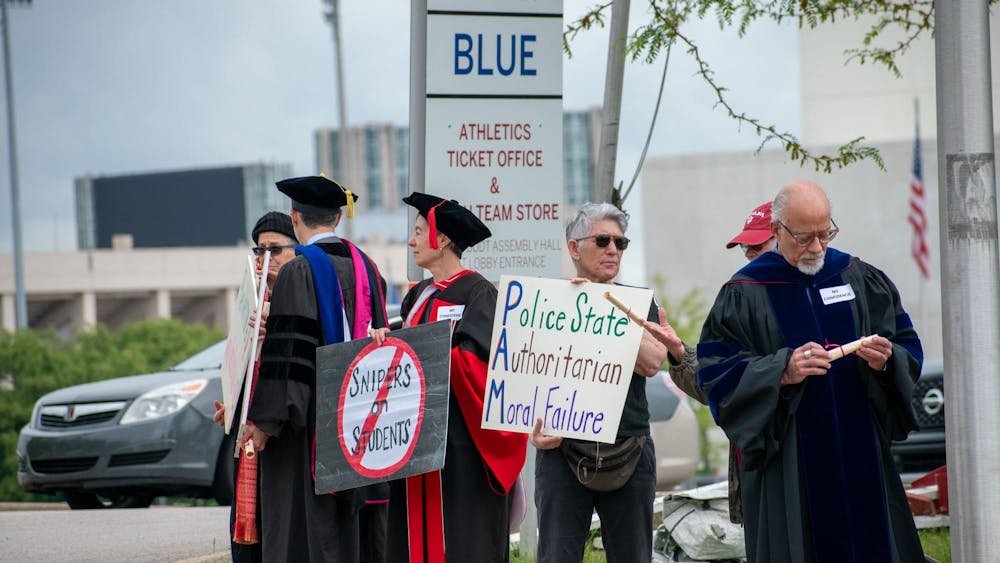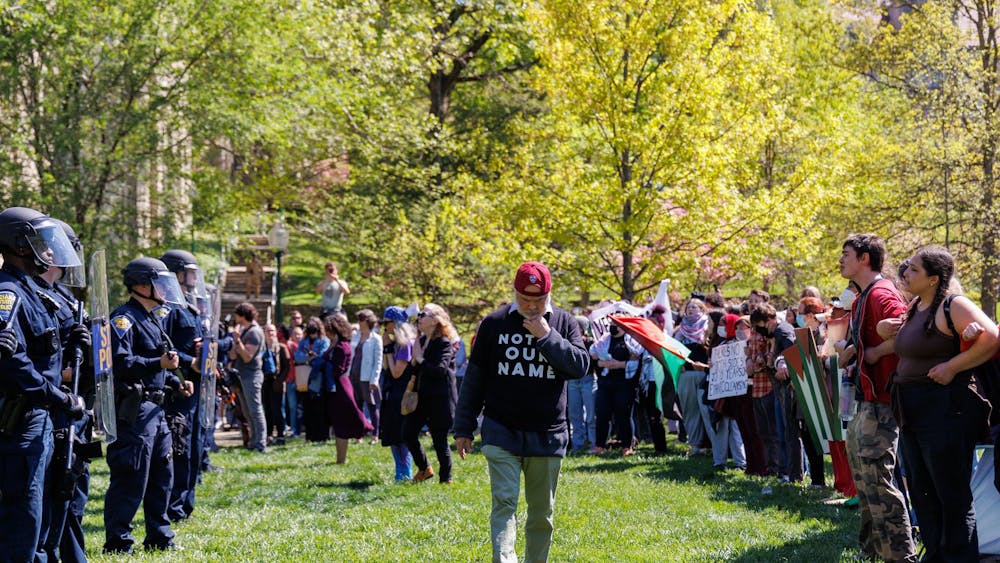With an unprecedented six tickets running in this year’s IU Student Association election, candidates are tasked with distinguishing their platforms from those of their five opponents.
So far four campaigns have launched websites outlining their policy goals and profiling their four executive candidates. The Psych Up campaign has released their executive candidates while one ticket, Refund Supreme, has announced only a presidential candidate.
Focus for IUSA
The Focus ticket is led by junior Brandon Sakbun, the current adviser to the vice president of Congress. Sakbun said his passion for civic duty and the potential for greatness he saw in student government is part of what prompted him to get involved in the IUSA election.
An issue Sakbun said he observed in past IUSA congresses was a focus on decorum and formality instead of the quality of debate. He said he admires the current administration, but he’s also the type of person who wants to continue raising the bar and improving student government.
“I don’t believe in saying ‘all Congress members will wear business casual at bare minimum,’” Sakbun said. “That’s not what I’m focused on. What I’m focused on is the quality of the debate and what issues they’re talking about.”
Still, Sakbun said he understands professionalism and standards because he is a member of the Army Reserve Officers’ Training Corps program. He also interned in both legislative and executive branch offices in Washington, D.C., last semester. He said the experience reinforced his desire to give back to his community.
Focus’ executive team will assess all possibilities when confronting an issue or advocating for students to the IU Board of Trustees, Sakbun said. It is confident in its ability to adapt to environments in order to be effective, a skill Sakbun said he borrows from the military.
“I’m 100 percent prepared to walk in the room and say, ‘this is what the students want,’” Sakbun said.
Another goal Sakbun said he hopes to accomplish is raising awareness of student government by reassessing how IUSA markets itself. Focus’ plan is to have a monthly town hall in collaboration with student groups and cultural centers, which would open conversations to people who might not feel a part of student government decision-making.
“My plan is if 10-percent of the student body population knows about IUSA, I want 20 percent to know by the end of fall semester and 40 percent to know by the end of next year,” Sakbun said.
Engage with IUSA
The Engage ticket is led by junior Michelle Long, who said she has assisted with policy planning and communication between IUSA, faculty and administrators in the past and been involved with student orientation and other programs that help foster IU’s “Culture of Care.”
“First and foremost our campaign is focused on something that’s a lot bigger than IUSA itself,” Long said. “We’re really trying to spark more campus engagement and help students grow into their own autonomy.”
Long said the campaign is committed to meeting with all members of the campus community with a priority on engaging students who may feel left behind or disenfranchised from IUSA.
Of the many policies on Engage’s website, Long said their diversity and inclusion plans are the most pressing, given the current political climate, though she admitted it was hard to say they prioritized this over other important platform issues.
Some inclusion initiatives involve increasing accessibility for people with physical disabilities, creating an interfaith prayer room on campus and incorporating electronic benefit transfer and other types of food stamps into meal plans.
“Everything that I’ve done on campus is to make sure Hoosiers feel more comfortable and safe,” Long said.
Empower IU
Dan Niersbach, a junior, is the presidential candidate for the Empower IU ticket, though he said the campaign is more focused on proposed policy than it is on individual candidates. Niersbach said he wants to give marginalized students more input in campus affairs and bring a new level of professionalism to IUSA.
“We strongly believe the organization should exist on campus for the students on campus not ourselves,” Niersbach said.
Empower IU’s mission is divided into three pillars: a sense of continuity and longevity planning, the fostering of a positive professional culture and the creation of avenues for students to have their voice amplified by the student government. Each of Empower IU’s six platform departments have been split up into specific policies, which Niersbach said may sound ambitious but hopes will also be effective.
Niersbach said the goal of longevity planning is for policy to keep its momentum with future administrations. Some plans are targeted toward helping certain marginalized groups succeed and have a voice on campus, what he called pointed policy, while other initiatives are part of a larger, five-year plan. Plans that fit into the latter category include some environmental sustainability and mental health initiatives.
Empower IU is the biggest campaign team Niersbach has seen since coming to IU, he said. The ticket has candidates for 60 of the 62 congressional seats and staff members working on each policy area.
He also emphasized strong support for undocumented students. He said they intend to communicate and meet with different groups and get their persepctives as well. fThe importance of faculty and staff, whose safety and ability to continue their work and study on campus is essential to Empower IU’s values was also a major point for Niersbach.
Sophomore Olivia Malone Empower IU’s chief of staff, said the amount of research she has seen put into crafting policy distinguishes the campaign from others. In addition to extensive research on policy, Malone said the campaign has and will continue to reach out to student groups to co-sponsor specific policies that may affect them. Malone also said Empower IU has a goal of increasing the level of collaboration between the executive and legislative branches of IUSA.
“We’re not just focusing on the ticket, we’re focusing on everyone as a really important part of what we’re doing,” Malone said. “And I think that’s what student government should be doing more of: emphasizing the fact that we’re not just four people, that we’re more than that, and that’s what makes us strong.”
IGNITE for IUSA
IGNITE for IUSA’s ticket is led by sophomore Will Mckinney, who said he wanted IUSA students to look forward to the vision his ticket would provide. Like other campaigns, Mckinney said he wants to open up the discussion to students who aren’t directly involved with student government.
He said every member who is in student government should actively contribute to decisions, which he hopes will be the standard if his ticket wins the election.
“It’s kind of like a group project where one or two of the people in the group do all the work, and the rest are all along for the ride,” Mckinney said. “I want it to be more collaborative.”
Mckinney said IGNITE’s platform is split into three divisions of policy creation: traditional, which is what most students would expect of normal legislative processes; collaborative, where the discussion is opened to other students outside of student government; and a final strategy, distinct to IGNITE’s campaign.
“Then we have something called gladiator, which I think is really cool,” McKinney said. “Our campaign is willing to go where other campaigns aren’t. When we have an idea, and we want it, and we know students want it, we’re not going to stop.”
This gladiator strategy would entail pushing campus administrators until the answer on a question is a definite “yes” or “no.”
Mckinney said power in IUSA is balanced in favor of the executive branch, something he wants to change if elected. A lot of great ideas have originated in IUSA’s executive branch, he said, but they need to be followed up by actions, a task better accomplished when power is shared with other branches of the student government and the student body as a whole.
Psych Up
The cornerstone of Psych Up’s platform is focusing the IUSA budget on programs that benefit the community and are not wasteful in nature.
“It’s about refunding the money back to programs that actually benefit the students, not just the IUSA,” said Kyle Yohler, Psych Up’s treasurer candidate.
Yohler said the current IUSA administration’s use of funding for luncheons, executive scholarships and guest speakers was a mismanagement of student fees, which could be redirected to initiatives which do not only benefit members of student government. Psych Up plans to keep some of the current budget items, like sexual and mental health initiatives that benefit the student body as a whole, Yohler said.
He said he and his fellow ticket members had previously discussed the self-spending, which is what prompted them to get involved in this year’s election.
Yohler said along with funding for Counseling and Psychological Services and mental health awareness initiatives, Psych Up plans to keep funding for programs like sexual health awareness and IUSA’s freshman internship program.
The campaign is candidate-run, Yohler said, and they plan on relying on word of mouth rather than social media and web-based methods of promoting their ticket.
Refund Supreme
Refund Supreme has not announced the rest of its executive slate beyond presidential candidate Sarah Yde. Campaign manager Samuel Patterson, a junior, said their campaign is libertarian-leaning and wants to reduce government waste.
“Our main platform is to refund the student fee by cutting inappropriate spending,” he later said in an email.
Patterson said Refund Supreme wants to keep budget items such as culture of care initiatives, flowers for the families of deceased students and programs focused on drug and alcohol education. They would like to eliminate the flow of student fees to events like luncheons and other expenditures that only benefit members of IUSA.
He said there are proposed policies on inclusion, sustainability and other common areas but said the plan to refund student fees is the campaign’s distinguishing characteristic.
“Our main platform is to refund as much of the student fee as possible,” Patterson later said in an email. “The IUSA executives spend huge amounts of money on scholarships, parking passes, banquets, luncheons, and trips for themselves. We’re going to give that money back to the students.”
He said Refund Supreme wants to empower students by being transparent. Meetings of congress would be videotaped and posted online, and IUSA office hours would be turned into open meetings for the public to meet with executive members.
“On issues like recycling, sexual assault, mental health, late-night safety, and campus jobs we agree with the other tickets,” Patterson said.






